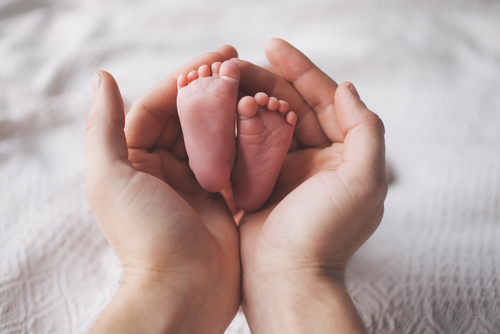Hannah Goodman is a Paralegal in our Clinical Negligence team and has put this helpful guide together looking at options that you should consider to remain safe during childbirth.
In the UK, you have the choice to give birth at home, in hospital or in a midwifery unit, and you should be supported in whatever choice you make. It is just as important to be aware and understand which of those options may not be safe for you or your baby. Your options may be limited by your circumstances, and you may find that your priorities and needs change as time goes on.
Home Births
A home birth is appealing for those who wish to give birth without medical interventions and have more control over the birthing process, or simply those that wish to give birth in the comfort of their own home, whilst still being supported by a midwife.
A home birth is generally a safe and suitable option if this pregnancy is low risk, and you have had a baby before. Your midwife must risk assess your pregnancy to ensure that a home birth is suitable for both you and your baby, taking various factors into account.
The risks of home births are greatly increased in circumstances such as:
- Abnormal scans during this pregnancy
- Previous c-section
- Baby is in breech position
- You have given birth prematurely before
- Multiple pregnancy
- Pre-eclampsia or high blood pressure
- Diabetes
- High BMI
- Accessibility of your home
Hospital Births
Giving birth in hospital provides comfort in a different way; doctors will be available if you need them. The direct access to specialist, obstetricians, and anaesthetists that the hospital setting provides, can be lifesaving if something were to go wrong. This does not necessarily mean that giving non-hospital births are unsafe, but you may be advised to have a hospital birth if your pregnancy is high risk.
Midwifery units
Midwifery units are an appealing medium between hospital births and home births. They are generally more comfortable and homely than a maternity unit at hospital, and you are more likely to be looked after a midwife that you have built trust and become familiar with during the courser of your pregnancy. Some midwifery units are connected to a hospital, where pregnancy, new born and anaesthetic care is available, whereas some are completely separate and without immediate obstetric neonatal or anaesthetic care.

Can I claim for Medical Negligence?
Unfortunately, some women are misled, not informed that giving birth at home or in a midwifery unit was not a safe option given their circumstances, or even had a midwife that was not equipped to manage their baby’s birth. This can lead to traumatic births with devastating outcomes. If this has been the case for you, you may be entitled to claim for medical negligence. Our clinical negligence team is experienced in handling cases like these with empathy and understanding throughout.
Our specialist solicitors can discuss your injury with you and recommend the best next steps. Hannah Goodman is a Paralegal in the Clinical Negligence and Personal Injury team.
If you need help with this issue contact Hannah today [email protected]
call 01803 225159
Clinical negligence Lawyers – Wollens Solicitors Devon



